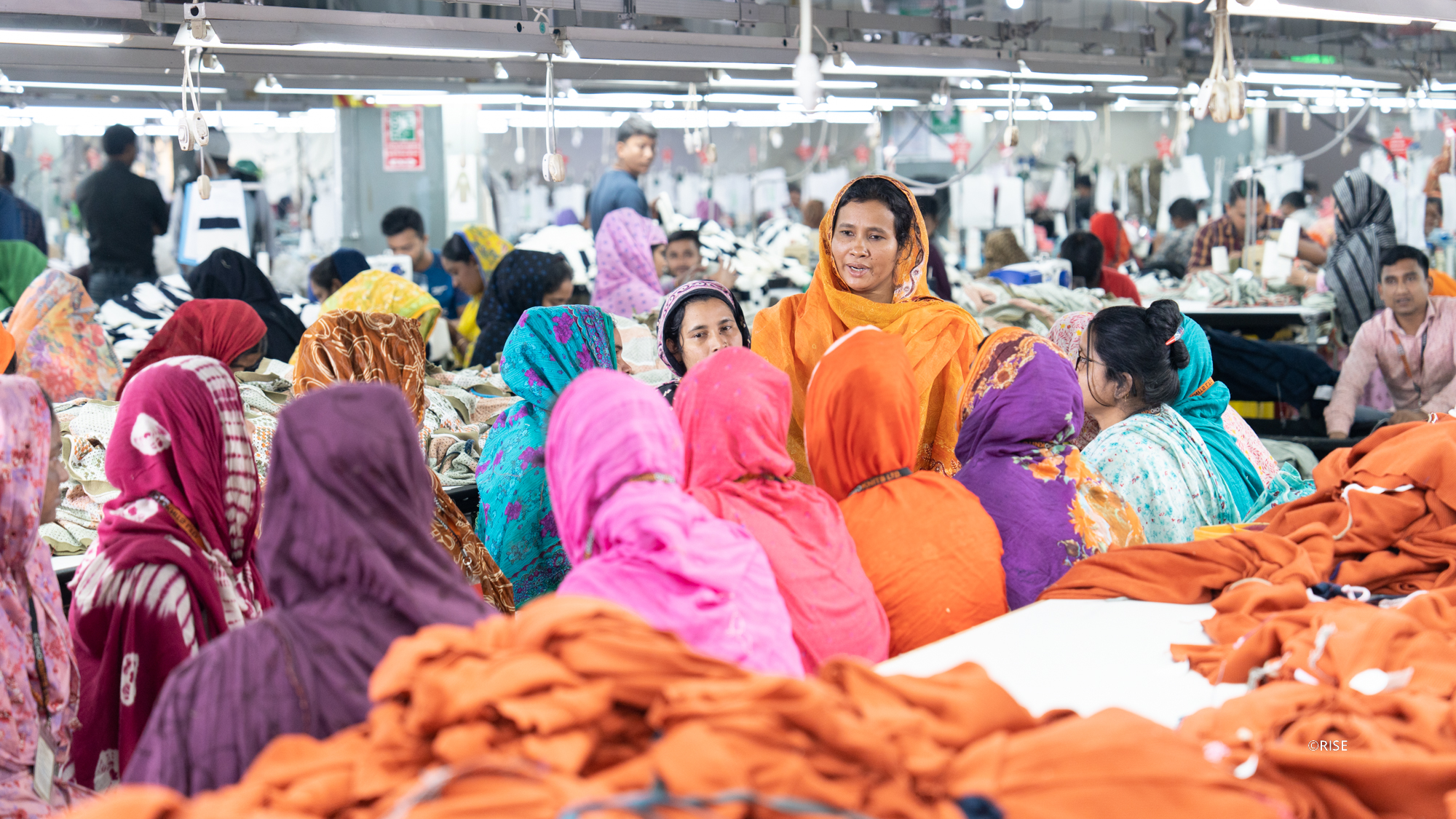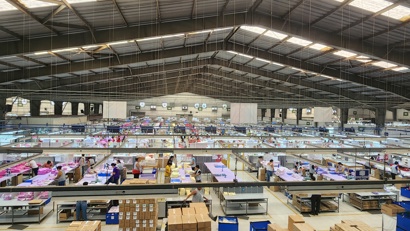
Key Points
- Women workers are underrepresented in leadership roles within factories in the Ready-made-Garment (RGM) supply chains
- Existing activities focused on workers’ and supervisors' capacity building to promote women to supervisory roles don’t fully match the expectations of workers or address their concerns
- There is an opportunity to explore a broader approach to supporting women’s advancement, beyond supervisory roles, that can get the buy-in of women and support longer term business needs.
Despite the fashion industry being a female-dominated industry-- 82% of customers and 60% of workers in the garment supply chain industry are women—women in leadership roles in factories remain low. In Bangladesh, for example, only 9% of supervisors and managers are women while 84% of the women are working in lower-paying roles. The limited opportunities for women to advance provides industry and its partners with a chance to re-evaluate career paths that better reflect the needs and aspirations of factory workers.
At RISE, an initiative to support collaborative industry action to advance gender equality, we gathered women workers perspectives on how they define career advancement. In Bangladesh and India, we spoke to 132 factory workers, 24 managers and 20 community members. We then supplemented these findings during interviews and discussions with more than 50 global stakeholders including international buyers, international organizations, local suppliers, academics, and women's organizations.
At the same time, we mapped 25 separate programs in garment supply chains that address women’s leadership and advancement. Over 90 % of them focus on workers’ and supervisors' capacity building to promote women to supervisory roles. Whilst a valuable part of the solution, these programs don’t fully address the concerns of workers.
Women identified various barriers to upward mobility approaches, including a significant increase in stress and work responsibilities—including being the subject to new forms of violence and harassment, risk of being ostracized from the community because it goes against social expectations, risk of not fulfilling family responsibilities and expectations of a new role, and risk of losing rights such as ability to unionize and access to mandatory childcare--to name a few. While a supervisory position may result in an income increase, women workers felt this might not compensate for these new risks.
By taking a too narrow view on progression and leadership, there is a risk that programs targeted at women might overlook additional paths for advancement beyond supervisory roles.
Against this backdrop, RISE wants to collaborate with the industry to redefine what women’s advancement and leadership means. Here are three key findings from the research and mapping that we bring with us into this:
1. Adverse social norms compound what is already an uneven playing field
Women face systemic hurdles in their pursuit of progress on the factory floor due to informal social systems such as rooted gender norms and biases and formal ones like legislative frameworks.
Social norms such as management preferring men over women to fill a leadership position or a job that requires machine operation directly impact women’s ability to advance. Often, women are held to higher skill level standards than their male counterparts, and traditional skills and traits perceived as ‘male’ such as confidence, charisma, a loud voice, and control over others are preferred by factory management. Also, the lack of family support discourages women from pursuing advancement opportunities in the industry; some women avoid growing in their careers due to fear of losing family and community networks.
“The RMG sector is trying to incorporate more women in leadership positions, but the barrier comes mainly from the family.” –Factory Manager, Bangladesh
In addition, companies and other industry players should be aware that the regulatory framework in some countries penalize women that advance into supervisory positions, and initiatives that seek to increase the number of women in those positions might have unintended consequences. For example, in Bangladesh workers moving to supervisory positions might be refrained from unionizing; and access to rights as childcare benefits and overtime payment are unclear; which makes such roles unattractive for women.
2. Unpaid care work and childcare responsibilities must be taken into consideration when exploring women’s advancement.
Many of the women workers we spoke to said that caring and providing for their family is an important duty which they associate with success and societal status. Conversely, in some workplaces, women’s caring duties can be seen as a burden and obstacle to investing in women’s progression, a view expressed by some managers and male peers during our interviews. In addition, the lack of quality childcare services and care public policies adds up to the challenge. We heard from women that a lack of good quality, accessible and sufficient childcare is a significant challenge. In Bangladesh, carrying out unpaid care work is the main reason women leave the factory, which can reduce their income by up to 85%.
3. Any women’s advancement intervention should consider the future state of the industry.
In exploring new approaches to women’s advancement, it is critical to look at considerations of women's advancement within a future of work scenario, including how women will be impacted by industry changes, such as automation, climate change, circularity, migration patterns and economic uncertainties.
The industry is experiencing a decline in women labor, in countries like Bangladesh, the proportion of women garment workers has continued to decline from 80% in the 1980s to 54% in 2021. As such, there is a unique opportunity for the industry to broaden women’s advancement to increased opportunities beyond entry-level, with increased decision-making influence and increased income. The garment and footwear industry must create multipronged and long-term pathways for its workers to progress and thrive.
Women’s advancement should not be about “fixing” women or advocating for them to follow traditional career progression routes that were molded for men. Rather, an approach to advancement addressing gender norms and responsive to women’s needs, realities, and aspirations has the potential to increase their income and agency within the workplace, their household, and communities. It can lead to broader career options beyond the linear progression from line operator to supervisor while contributing to business resilience and sustainability.
In practice, this includes opportunities for vertical progression of women to supervisors or managerial roles while at the same time enabling horizontal advancement through access and representation in good quality and highly demanded jobs, such as machine operation. It also allows women to voice their concerns, make decisions by participating in collective action through unions or workers’ committees and be represented in the marketplace as business owners.
Amidst the current decrease of female labor participation in the industry in some countries, advancement should also contemplate expanded opportunities for women outside the factory. To succeed in this endeavor, looking at systemic challenges such as childcare provision and changing social norms and creating an enabling legislative environment is also essential.
This is why we call for industry partners to help us shape - through an industry roadmap – a new narrative of Women’s Advancement together with women workers. If you are interested in collaborating reach out to Laura Macías lmacias@bsr.org.
*RISE would like to thank research partners Consiglieri Private Limited, Colors Consulting, and Eva Ehoke for their contribution.
 Laura Macías
Laura Macías
 Sreya Nath
Sreya Nath
 Sharmishtha Nanda
Sharmishtha Nanda


